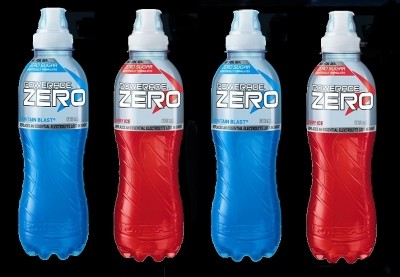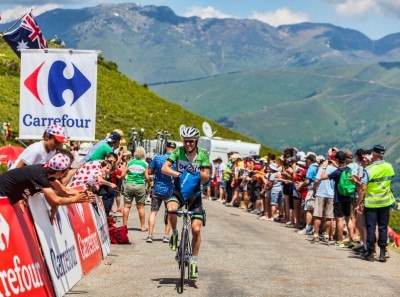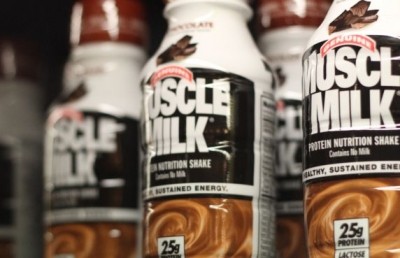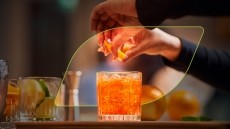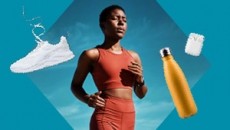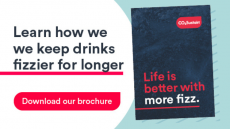Should Argentina's Messi have ditched the sports drink in the second half? Study casts doubt on soccer blood sugar effect
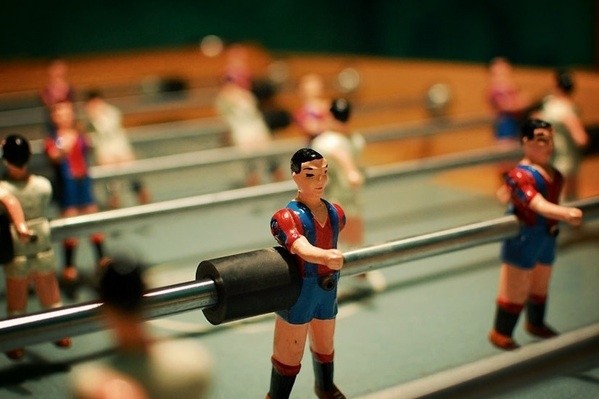
Writing in the Journal of Athletic Training, by UK and Australia-based academics Mark Russell, David Benton and Michael Kingsley say their study is the first to document a transient lowering of blood glucose concentrations during routine consumption of such drinks during competitive team sport.
Russell et al. say the efficacy of carbohydrate-based fluid supplementation for ‘high-intensity, intermittent activity’ sports teams could be improved to maintain high blood glucose concentrations in a 90-minute match, and note that the regime they followed is recommended by the powerful American College of Sports Medicine.
“A 6% CHO-electrolyte beverage ingested two hours before and throughout soccer match play initially elevated blood glucose concentrations relative to ingestion of PL throughout the first half of exercise,” they write.
“However, a sharp decline in blood glucose concentrations occurred in both trials during the passive rest period, and blood glucose concentrations were similar between conditions throughout the second half.”
Swansea City academy players drink sports beverage and placebo
The team tested 10 male trainee soccer players with an average age of 15.6 years, all of whom were on the books of Welsh club Swansea City in second-tier league the Championship.
The scientists performed two trials using carbohydrate (CHO) and placebo (PL) drinks, separated by one week and completed in a counterbalanced, double blind, crossover fashion.
Players were told to refrain from strenuous exercise and caffeine consumption in the two days preceding testing sessions, and all kept food diaries for the same period prior to the tests.
Urine and blood samples were taken prior to the tests before players ate a standard 1,470kj meal – 62% carbohydrates, 25% fats, 13% proteins and 500ml of the treatment beverage.
After 90 minutes rest following the meal, the players spent 30 minutes warming up, before playing two matches against a rival academy team of a similar standard.
The players and formations were consistent for both teams across the matches, and the referee was the same.
Blood samples taken throughout match
During the CHO trial, players drank a CHO-electrolyte beverage with 6% sucrose, 23 mmol L-1 (millimols/liter) sodium and 14 mmol L-1 chloride, while the PL drink was identical in terms of electrolyte content, but void of CHO and sweetened with sodium saccharin; both drinks were flavored with a commercial fruit cordial.
Fingertip blood samples were taken from all 10 outfield players during each 15-minute time point in the game, of which there were five in all. One player left the pitch on two minutes, after he was tested another followed.
During their absence from the pitch one substitute player joined the match and played in their position.
“We believe that we are the first to document a transient lowering of blood glucose concentrations while players were routinely ingesting a CHO-electrolyte beverage during competitive play of a team sport such as soccer,” Russell et al. write.
So why was this occurring? The scientists say blood glucose concentrations fell 30% during the 15-minute halftime rest periods in both matches, and were similar in both matches for the remainder of play.
Current carbohydrate-fluid replacement strategies lacking?
Citing Bangsbo (2007) they write: “Researchers have speculated that an increased glucose uptake by the previously active muscles, lowered catecholamine [stress hormones with hyperglycemic responses triggered during high-intensity exercise] concentrations and reduced stimulation of liver glycogenolysis can cause a transient reduction in blood glucose concentrations at the onset of the second half.”
Russell et al. note that their supplementation regime was consistent with nutritional guidelines from the American College of Sports Medicine, the largest sports medicine institute in the world.
“Our findings suggested that current CHO-fluid-replacement strategies do not increase blood glucose concentrations in the second half of a soccer match play when the halftime recovery period is passive,” they write, adding that blood glucose concentrations were similar in the second half of both matches due to the transient reductions from peak values that occurred at half time.
Title: 'Carbohydrate Ingestion Before and During Soccer Match Play and Blood Glucose and Lactate Concentrations'
Authors: Mark Russell, David Benton, Michael Kingsley
Source: Journal of Athletic Training, Volume 49, No.3, June 2014, doi: 10.4085/1062-6050-49.3.12
